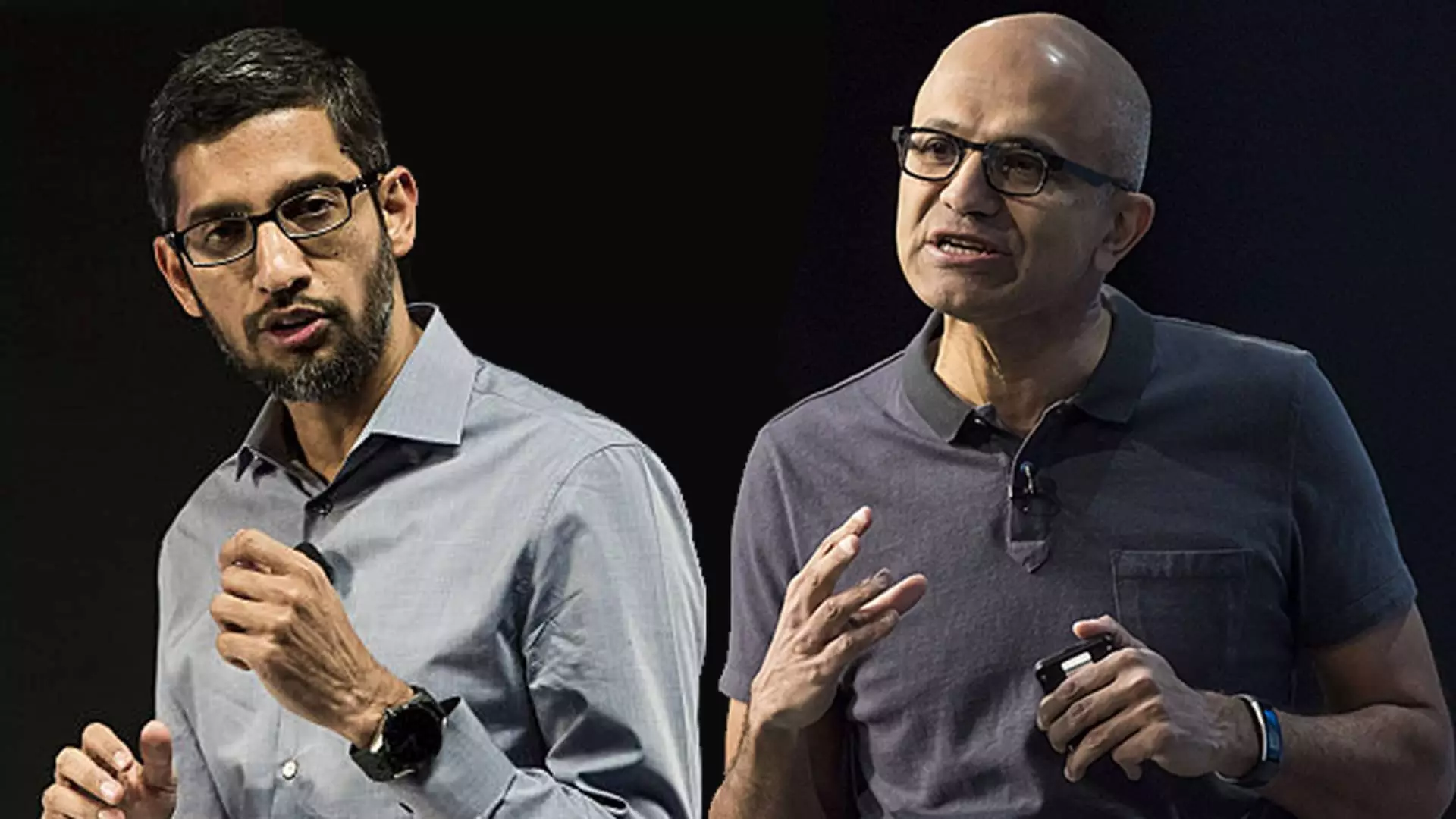In the rapidly evolving digital landscape, corporate rivalries often manifest in unconventional forms. A recent public allegation by Microsoft against Google exemplifies this trend. Microsoft has taken a bold stance by accusing Google of orchestrating “shadow campaigns” in Europe, allegedly aimed at undermining Microsoft’s reputation and influence among regulators. Such accusations within the tech giant arena resonate far beyond mere competition, highlighting the deeper implications of corporate maneuvers in the realm of cloud services and regulatory interplay.
Microsoft’s legal representative, Rima Alaily, posted a blog entry outlining serious concerns regarding Google’s alleged tactics. According to Microsoft, Google has engaged a firm purportedly tasked with recruiting European cloud service providers to present a curated narrative that positions Google favorably while disparaging Microsoft’s practices. This revelation raises questions about transparency and ethical behaviors within corporate battles. Alaily’s claim that Google is attempting to manage perceptions through a façade of advocacy—by forming the “Open Cloud Coalition”—suggests a strategic move to sway public and regulatory opinion.
Moreover, the term “astroturfing” employed by Alaily implies a manufactured grassroots movement rather than a genuine coalition, which raises ethical concerns about corporate influence on policymaking. To create a perception of legitimacy, the coalition includes selected cloud service firms, presumably generous in Google’s financial backing albeit masked as an independent initiative. This tactic not only potentially distorts regulation but also undermines the spirit of competitive fairness that regulators aspire to uphold.
This incident is not merely an isolated conflict; it symbolizes the larger struggles within the tech industry, particularly between cloud service providers. As Microsoft and Google engage in a fierce competition over cloud infrastructure, public trust and regulatory scrutiny become critical factors in defining market leadership. Increased scrutiny from regulators, especially in Europe and the United States, poses considerable risks for tech giants, sparking aggressive pushbacks against perceived anti-competitive behavior.
As the European Commission intensifies its scrutiny of large tech companies, Google’s alleged engagement in shadow campaigns could be viewed as a defensive maneuver. With ongoing antitrust trials and investigations, this strategy could either backfire or become a crucial part of Google’s defense. This situation illustrates how the stakes in the tech sector extend beyond market share; they delve into public perception and regulatory outcomes, driving companies to adopt cunning strategies to safeguard their interests.
In response to Microsoft’s allegations, Google has voiced its perspective regarding Microsoft’s cloud licensing policies, suggesting that they create unnecessary barriers for consumers and stifle competition. This counter-narrative reflects the dynamic nature of this confrontation, wherein both giants are relentlessly striving to frame the dialogue to their advantage. The tension is palpable; both companies are entrenched in a battle not only for market supremacy but also for regulatory favor.
Google’s decision to lodge a complaint with the European Commission highlights its aggressive posture in this struggle. The tech giant has alleged that Microsoft’s licensing practices are detrimental to the competitive landscape, echoing sentiments that resonate with regulators seeking to ensure market fairness. This competitive back-and-forth serves to illuminate the complexities inherent in large-scale technology operations, where regulatory allegiances can influence dominance in a rapidly changing market.
The unfolding clash between Microsoft and Google serves as a testament to the increasingly contentious and multifaceted nature of competition in the tech industry. As both companies continue to navigate a complex web of regulatory scrutiny and public opinion, their strategies will undoubtedly evolve, impacting not just their market positions but also the broader landscape of cloud services and digital infrastructure. This rivalry, marked by accusations, counter-claims, and strategic positioning, underscores how crucial it is for companies to cultivate both robust products and meaningful relationships with regulators and consumers alike.
In sum, the situation provides a cautionary tale about the lengths to which corporations will go to protect their interests and the nuanced relationship between innovation, competition, and regulation. Both Microsoft and Google exemplify the challenges that arise in the pursuit of leadership in an industry characterized by rapid technological advancement and intense rivalry. As this saga continues, stakeholders—including consumers, cloud companies, and regulatory bodies—must remain vigilant and discerning in their appraisal of corporate intentions and actions.


Leave a Reply